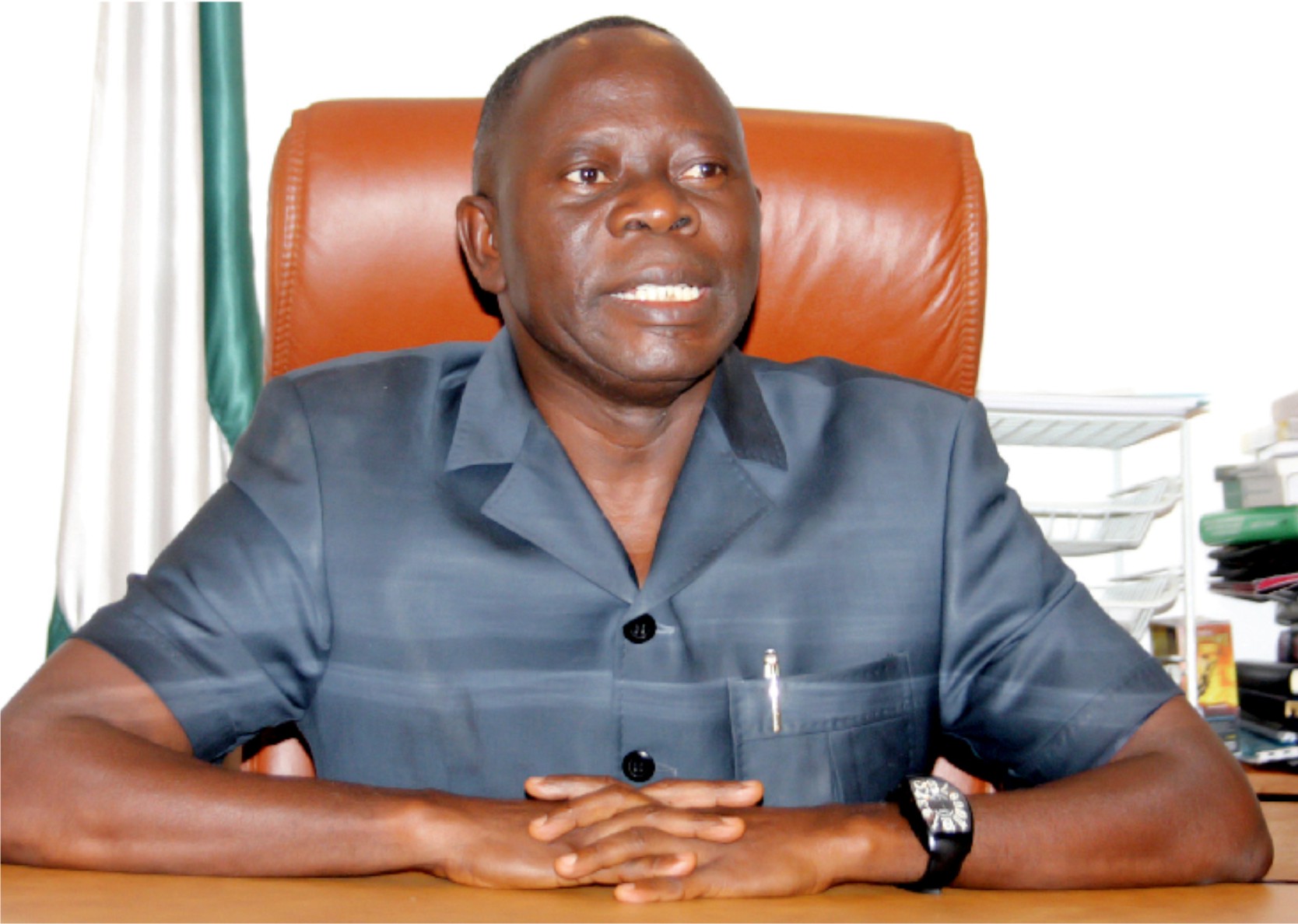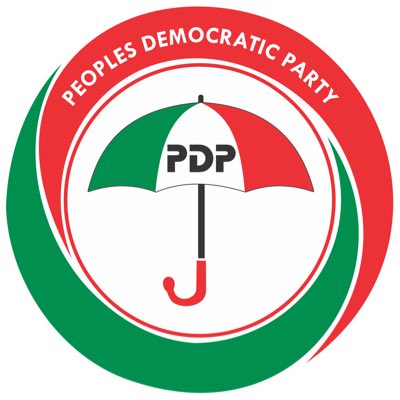Politics
Still On Edo, Bauchi States Assembly Crises

In Political lexicon, especially in the African concept, power is either won or captured whether it is a so-called democratic setting or military rule. Both under democratic and military rule, the desire to win at all costs and maintain that status quo involves not only intrigues but also some level of ruthlessness and intimidation of opponent.
Most times those who lose out in the power game do not just cry foul, but also behave as if they are saints. This behaviour cuts across party lines as there is hardly any and politician in Nigeria who does not exhibit this behaviour.
Prior to the inauguration of the 8th National Assembly, the power play that brought Dr Bukola Saraki and Yakubo Dogara zx Senate President and Speaker House of Representatives respectively is well known as the godfathers who felt that it was their sole right to appoint the senate President or Speaker of the House of Representative lost out. However, the shame they brought to the country was of no consequence as they believed it was only their will that must be done.
Today, the situation is not all that different even at the state level, where individuals still prefer the speaker or Deputy Speaker of a house of Aassembly.
Recently, states like Edo and Bauchi were in the news a lot of house trading, scheming and shouting took place in these legislatures following the emergence of some honourable members as speakers and deputy speakers.
In Edo State, there was a running battle between the governor Mr Godwin Obaseki and the National Chairman of the All Progressives Congress, Comrade Adams Oshiomhole, on who becomes a principal officer of the Edo State House of Assembly, and at the end of the tussle, the Godwin Obaseki faction emerged victorious with his preferred candidates emerging Speaker and Deputy Speaker.
Here, the Nigerian incumbency factor played a very crucial role as 8 out of the 24 members won outright, indicating that in this country anything is possible as no Governor will allow his opponents to outwit him in the game of thrones and patronage.
This same game of power was just a replica of what happened in 2014, when the house of assembly was ingulfed in crisis over who became the Speaker. over that situation was a bit different as the power equation in the assembly was evenly balanced, between the APC and the PDP. But, sadly in 2019, all the gladiators belong to the APC, yet there was still infighting.
The major question is, why is the APC, which has both the executive and legislative arms in its pocket, still behaving as if they belong to two different political parties? Reacting to the crisis, the immediate past National Chairman of the All Progressives Congress, John Odigie-Oyegun, accused his successor, Comrade Adams Oshiomhole, of trying to undermine the Obaseki’s administration.
However, the 15-member-elect, who were absent during the Monday night inauguration, are still insisting on proper inauguration, arguing that the house was not properly inaugurated and that the government has no right to foster a leadership on them.
This same scenario also played out in Bauchi State where II out of the 33 members elected a speaker and deputy speaker. But the difference here is that the APC has a majority of 22-member-elect but were clearly outwitted by their opponents.
How did we get here? Under the 1999 constitution, section 92 (1), Chapter V, states that there shall be a speaker and a Deputy Speaker of a State House of Assembly, who shall be elected by the members of the House from among themselves.
Section 98 (1 and 2) clearly stipulates that voting must be by a simple majority. The question is, were those guidelines followed? In any power tussle in Nigerian politics, it has always been to outwit the opponent remained outwit your opponents, then let them fight you from the This has always been the case at whatever level of election, as nobody likes losing out in elections.
Here, people do not ask whether there is right or wrong, but who won at the end. If the losing camp had the day, they would have attributed such success to the will of God. So, to whom will they attribute their failure, if not God?
What most people in politics don’t take into cognizance is that in every power play, it is usually ‘dribble your opponent, using every weapon at your disposal. Politics is war, don’t give excuses for your failures’.
Today, Rt Honourable Frank Okiye of Edo State and Abubakar Suleiman are Speakers but the situation can change anytime as no condition is permanent. That is why the utterances of Comrade Oshiomhole should be condemned by all lovers of democracy. Oshiomhole even had the effrontery to give directives to the Inspector-General of Police “Not to provide security to the Houses of Assembly in Bauchi and Edo State”. So it is the great Comrade that is now controlling the Nigerian Police. Tin god syndrome has no place in Nigeria democracy.
Since every State House of Assembly is independent and autonomous, let the members sort themselves out and the least interference in the system the better.
We can always disagree to agree why sometimes people begin to question the quality of representation we get at the legislature. Most executives from the Presidency down to the state level, want absolute loyalty and are afraid of the unknown. That is why they want a rubber stamp legislative arm. That is also why most houses of assembly are not robust in lawmaking.
In the Second Republic under the late President Shehu Shagari, the quality of representation was very high at both the national and state assemblies. We never heard or read in the papers about midnight or 6am inauguration of the legislative arm or even factional Speakers. Today, even within the same political party there is always fighting, violence and court injunctions.
Nigeria did not vote honourable members to fight among themselves but to render serve to the populace; all those elected as state legislators should start exhibiting some sense of maturity and stop running to Abuja to seek support when they eventually lose out in their ambition to clinch a particular position. After all, in politics in those parts of the world, is either a game of numbers or using every means to outfox your opponent.
Governors Godwin Abaseki and Bala Mohammed will be savouring their victory as Kingmakers. If they had failed in their first task as Chief Executives, their swearing-in, then it would have shown that they did not have clout and that they lack the scheming skills as politicians in Nigeria.
The losers in the this first round should also learn that there is always real power at the hand of the governors, who at all times can grant favour. You just don’t toy with the executive as a legislator and if in doubt, ask Bukola Saraki.
Tonye Ikiroma-Owiye
Niger Delta
PDP Declares Edo Airline’s Plan As Misplaced Priority

News
Oji Clears Air On Appointment Of 15 Special Advisers By Fubara

The Special Adviser on Political Affairs to the Rivers State Governor, Dr. Darlington Oji, has disclosed that about 15 Special Advisers to the governor were duly approved by the Rivers State House of Assembly before the current political crisis in the State.
Oji made the disclosure in a Television programme in Port Harcourt, recently, while reacting to issues surrounding appointments, the impeachment moves against the governor and his deputy, and allegations of financial mismanagement.
He clarified that the appointment of Special Advisers was carried out in strict compliance with constitutional provisions, and received the approval of the Rivers State House of Assembly under the leadership of the Speaker, Martins Amaewhule, before the crisis began.
According to the Special Adviser, the appointments did not require any further screening, countering claims that the governor violated due process in constituting his advisory team.
On the impeachment proceedings against Governor Siminalayi Fubara, and his deputy, Professor Ngozi Odu, Oji described the process as unfounded and lacking constitutional backing.
He said that several lawmakers who initially supported the impeachment move were now reconsidering their stance after discovering that the process had no legal basis.
Oji also attributed the impeachment plot to personal and political ambitions, saying it is not motivated by the interest or welfare of the people of Rivers State.
Speaking on the financial position of the State after the Emergency Rule, the Special Adviser disclosed that the governor met about ?600 billion in the state’s coffers upon assumption of office.
He explained that the availability of funds enabled the administration to continue governance smoothly without the need for a supplementary budget.
The governor’s aide also refuted allegations of financial mismanagement against the governor, and stressed that all allocations to lawmakers and constituency projects were transparently handled.
He maintained that the Fubara administration remained focused on development, stability, and good governance despite the political distractions in the State.
Oji expressed confidence that the impeachment moves would eventually be abandoned as legislators and the public become more informed, adding that the governor’s leadership has continued to reassure citizens and sustain political stability in the State.
King Onunwor
Politics
Rivers Political Crisis: PANDEF Urges Restraint, Mutual Forbearance

Accordingg to the statement, the Board and National Executive Committee of PANDEF, noted with very grave concern the recent spate of political developments in Rivers State.
“Regrettably, these developments have now degenerated into the decision of the Rivers State House of Assembly to commence impeachment proceedings against the governor and deputy governor.
“This is a deeply disturbing situation that demands urgent attention in order to forestall further escalation and breakdown of law and order.
“This concern is heightened by the critical importance and strategic centrality of Rivers to the Niger Delta region and to the broader socio-political stability and economic wellbeing of Nigeria as a whole”, the statement said.
The Forum called on all parties involved in the resurgent political imbroglio to sheathe their swords and embrace peace.
“This should be guided by the principles of give-and-take, dialogue, tolerance, and political equanimity.
“All stakeholders must place paramount importance on peace, development and the welfare of the people of Rivers.
“We must now focus squarely on good governance and development of the state,” the Forum said.
PANDEF commended President Bola Tinubu, the leadership of the All Progressives Congress (APC), respected elders of Rivers State, and other well-meaning Nigerians for their previous and ongoing efforts aimed at restoring peace and stability in the state.
-

 News2 days ago
News2 days agoDon Lauds RSG, NECA On Job Fair
-

 Transport15 hours ago
Transport15 hours agoNigeria Rates 7th For Visa Application To France —–Schengen Visa
-

 Niger Delta12 hours ago
Niger Delta12 hours agoPDP Declares Edo Airline’s Plan As Misplaced Priority
-

 Nation13 hours ago
Nation13 hours agoHoS Hails Fubara Over Provision of Accommodation for Permanent Secretaries
-

 Sports13 hours ago
Sports13 hours agoSimba open Nwabali talks
-
Niger Delta14 hours ago
Stakeholders Task INC Aspirants On Dev … As ELECO Promises Transparent, Credible Polls
-
Niger Delta12 hours ago
Students Protest Non-indigene Appointment As Rector in C’River
-

 Oil & Energy15 hours ago
Oil & Energy15 hours agoElectricity Consumers Laud Aba Power for Exceeding 2025 Meter Rollout Target

